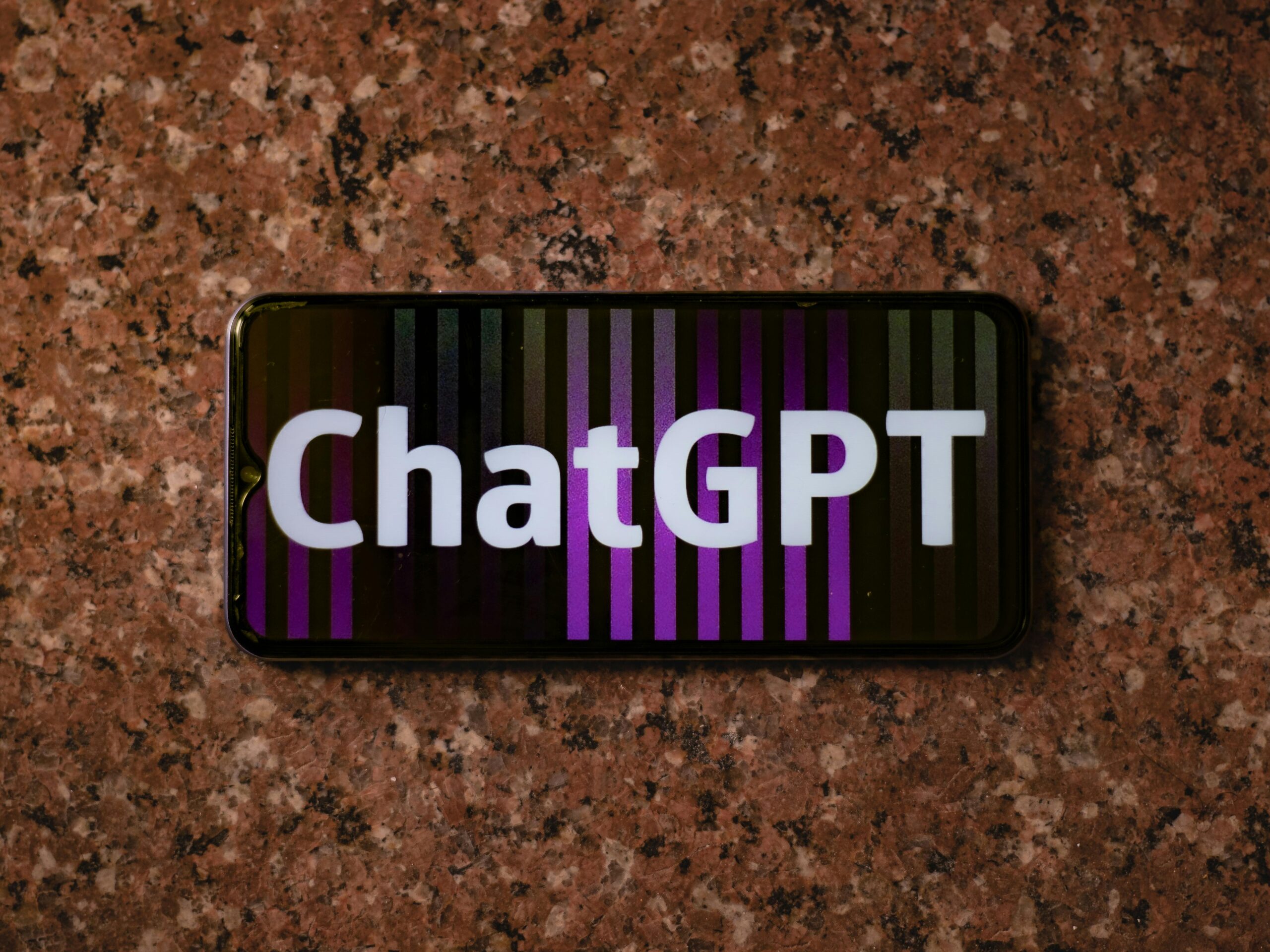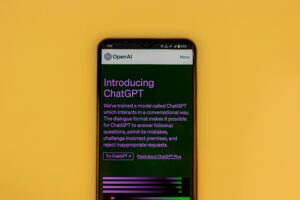ChatGPT, short for Chat Generative Pre-trained Transformer, is an advanced artificial intelligence (AI) model developed by OpenAI. It belongs to the Transformer architecture family and is specifically designed for natural language processing (NLP) tasks. ChatGPT is renowned for its ability to understand and generate human-like text, making it a powerful tool for various applications across different industries.

History and Development
ChatGPT traces its origins back to the development of the Transformer architecture by Google in 2017. OpenAI further advanced this technology with the release of the GPT (Generative Pre-trained Transformer) series. Over time, ChatGPT models have undergone significant enhancements, with each iteration incorporating improvements in architecture, training data, and fine-tuning techniques.
Features of ChatGPT
One of the key features of ChatGPT is its exceptional natural language understanding capability. It can comprehend and generate text in a manner that closely resembles human language. Additionally, ChatGPT models possess impressive text generation capabilities, allowing them to produce coherent and contextually relevant responses to user input. Moreover, recent iterations of ChatGPT have introduced multimodal capabilities, enabling the model to process and generate text based on both textual and visual inputs.
Applications of ChatGPT
ChatGPT finds extensive applications across various domains. In customer service, it serves as a virtual assistant, handling inquiries and providing assistance to users in real time. Additionally, ChatGPT is widely used in content creation, aiding writers in generating ideas, drafting articles, and improving overall writing quality. Furthermore, in the field of education, ChatGPT serves as a valuable tool for providing personalized learning experiences and answering students’ queries.
Benefits of Using ChatGPT
The utilization of ChatGPT offers several benefits to organizations and individuals alike. Firstly, it enhances efficiency and productivity by automating repetitive tasks and streamlining workflows. Secondly, ChatGPT is highly cost-effective compared to hiring human resources for similar tasks. Lastly, it contributes to an enhanced user experience by providing prompt and accurate responses to user queries, thereby improving overall satisfaction.
Limitations of ChatGPT
Despite its remarkable capabilities, ChatGPT is not without its limitations. One major concern is the potential for bias in the model’s outputs, which can perpetuate existing societal biases present in the training data. Moreover, ChatGPT may struggle with understanding context in certain situations, leading to inaccuracies or irrelevant responses. Additionally, there are ethical concerns regarding the potential misuse of ChatGPT for malicious purposes, such as spreading misinformation or generating harmful content.
Future of ChatGPT
Looking ahead, the future of ChatGPT holds promising advancements and challenges. Continued research and development efforts are expected to lead to further improvements in AI technology, enhancing ChatGPT’s capabilities in understanding and generating human-like text. However, it is crucial to address ethical considerations surrounding AI, including issues related to bias, privacy, and transparency. Moreover, the integration of ChatGPT with other emerging technologies, such as augmented reality and virtual reality, presents exciting opportunities for innovation in various fields.
Conclusion
In conclusion, ChatGPT represents a significant milestone in the field of artificial intelligence, offering remarkable capabilities in natural language processing and text generation. Its widespread adoption across different industries underscores its value as a versatile and powerful tool. However, it is essential to acknowledge and address the ethical and technical challenges associated with its use, ensuring responsible deployment and maximizing its potential benefits.

FAQs
- Is ChatGPT free to use?
- No, ChatGPT is a product developed by OpenAI and may require licensing or subscription fees for commercial use.
- Can ChatGPT understand multiple languages?
- ChatGPT primarily operates in English but can be fine-tuned to understand and generate text in other languages.
- How accurate is ChatGPT in generating text?
- ChatGPT’s accuracy depends on various factors such as the quality of training data and the specific task it is performing. While it can produce human-like text, it may occasionally generate errors or irrelevant responses.
- Is ChatGPT capable of learning from user interactions?
- Yes, ChatGPT can be fine-tuned with additional data, including user interactions, to improve its performance and tailor its responses to specific contexts.
- What measures are in place to prevent misuse of ChatGPT?
- OpenAI implements safeguards and moderation mechanisms to mitigate the risk of misuse, including content filtering and human review processes.
- List
- OpenAI emphasizes user privacy and data protection. ChatGPT is designed to process and generate text without storing or retaining any personally identifiable information unless explicitly permitted by the user or required for operational purposes.
- Can ChatGPT be integrated with existing software systems?
- Yes, ChatGPT’s API allows for seamless integration with various software applications and platforms, enabling developers to leverage its capabilities within their existing infrastructure.
- What are the key differences between different versions of ChatGPT?
- Each iteration of ChatGPT introduces improvements in model architecture, training data, and performance. Higher versions typically offer enhanced language understanding, improved text generation, and increased multitasking capabilities.
- Is ChatGPT suitable for businesses of all sizes?
- Yes, ChatGPT can benefit businesses of all sizes, from startups to large enterprises, by automating tasks, enhancing customer interactions, and optimizing workflows.
- How can users provide feedback or report issues with ChatGPT?
- OpenAI provides channels for users to submit feedback, report bugs, and request assistance with ChatGPT-related issues. This feedback is valuable for improving the model’s performance and addressing any concerns.
Conclusion
In summary, ChatGPT represents a groundbreaking advancement in artificial intelligence, with its ability to understand and generate human-like text revolutionizing various industries and applications. While its capabilities continue to evolve and expand, it is essential to approach its use responsibly, considering ethical implications and addressing potential challenges. By leveraging ChatGPT effectively and responsibly, organizations can unlock new opportunities for innovation, productivity, and enhanced user experiences.
Continued from Conclusion:
As ChatGPT continues to evolve, it’s crucial to remain vigilant about its ethical use. OpenAI and other stakeholders must work collaboratively to address concerns such as bias, privacy, and transparency. By implementing robust safeguards and fostering ongoing dialogue, we can ensure that ChatGPT and similar AI technologies contribute positively to society while minimizing potential risks.
In conclusion, ChatGPT is not just a powerful AI model; it’s a testament to human ingenuity and innovation. Its ability to comprehend and generate natural language has the potential to transform countless industries and redefine how we interact with technology. As we navigate the ever-changing landscape of AI, let’s embrace ChatGPT’s potential while remaining mindful of our responsibilities to wield it ethically and responsibly.







